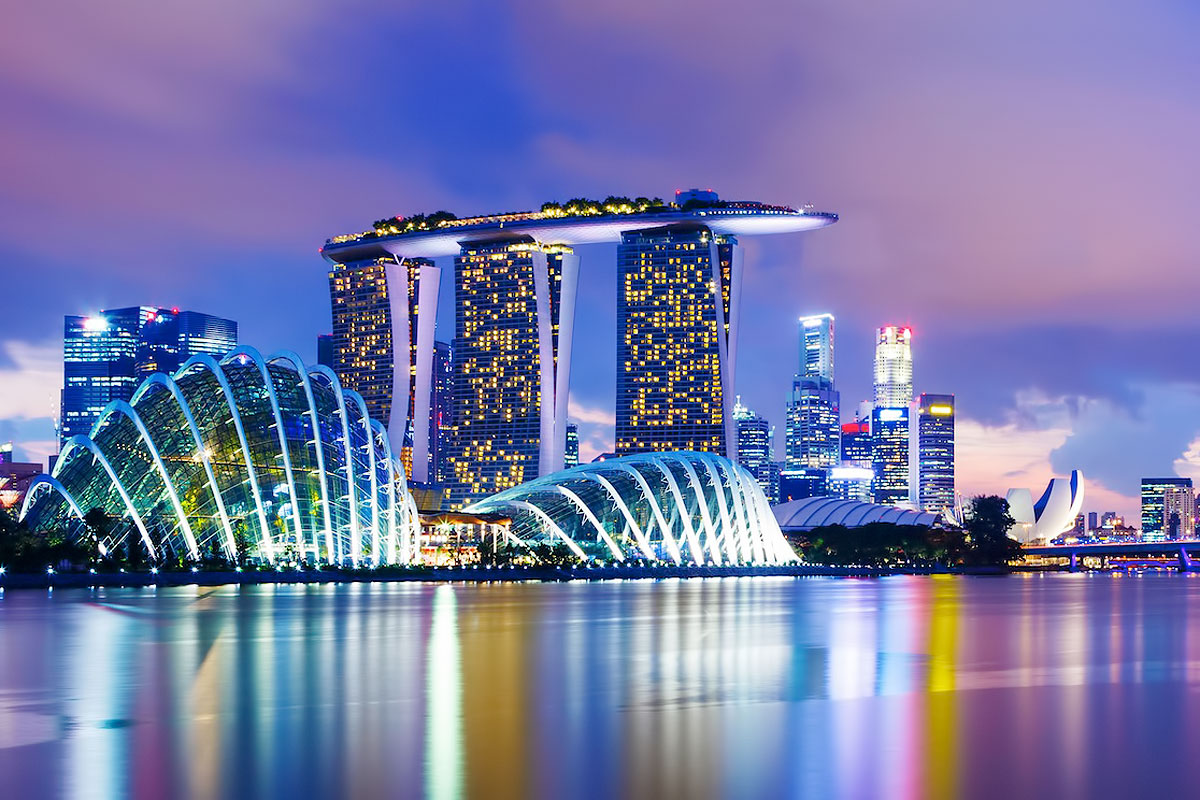SINGAPORE: Singapore topped the global ranking for the second year in a row in the latest Economic Freedom Index published last week by US conservative think-tank, The Heritage Foundation.
Singapore increased its overall score by 0.3 points to 89.7 primarily due to an improvement in the score for government spending. Singapore’s score is well-above the regional and world averages.
Rounding up the global top five are New Zealand in second place with 83.9 points, Australia, third (82.4 points), Switzerland in fourth with 81.9 points and Ireland (81.4 points).
As for the major economies, the United Kingdom is 7th (78.4 points) United States is ranked 20th with a score of 74.8 points, Japan 23rd (74.1 points), Germany is 29th (72.5 points) and China is number 107 scoring 58.4 points.
This is the first time the index has been published since the COVID-19 pandemic overturned lives as well as global economies and the scoring reflects to a small extent how governments have responded to the health crisis. 184 countries were covered in the study this time and the period of study is July 2019 to June 2020.
The biggest news generated from the “2021 Index of Economic Freedom” was however not the rankings or how COVID-19 impacted the scores but that The Heritage Foundation decided to exclude Hong Kong from its rankings for the first time ever. Hong Kong had topped the list for 25 out of the previous 26 years prior to the current year.
The Heritage Foundation said that the reason for leaving Hong Kong out is that the Special Administrative Region and its economic policies have now come under the direct control of Beijing. Dr Edwin J. Feulner, founder of The Heritage Foundation wrote in the Wall Street Journal that the city’s ties to Beijing are increasingly “forged in steel” and “traditions of English common law, freedom of speech and democracy have weakened significantly.”
The Foundation added that Hong Kong’s investment freedom has been hurt by political and social unrest dating back to 2019.
A spokesman for the Hong Kong government’s financial secretary however expressed “deep disappointment” at the decision in speaking to Reuters. He continued: “The decision is neither warranted nor justified. It does not do justice to (Hong Kong).” The spokesman also said that the claim that the city’s economic policies are controlled by Beijing is “ill-conceived and simply not true”.
He added that the assessment was “politically biased” and that Hong Kong’s core economic competitiveness, including free flow of capital, remains under the “one country, two systems” formula of governance put in place in 1997 when the city reverted from British to Chinese rule.
Singapore on the other hand remains the only country in the world that is considered economically free in every Index category, although its indicator scores for fiscal health and financial freedom just scraped through the threshold for the highest category.
The index ranks 12 indicators from property rights to financial freedom under four categories: rule of law, size of government, regulatory efficiency and open markets. The small island nation of Singapore made improvements or maintained its score for all 12 indicators except monetary freedom and judicial effectiveness which declined marginally, but its scores in these two indicators are still exceptionally high when compared with most other countries.
“The foundations of Singapore’s economic resilience and competitiveness include strong protection of property rights and effective enforcement of anti-corruption laws,” said Mr Anthony Kim, research manager at The Heritage Foundation and editor of the index, to The Straits Times of Singapore. “Efficient government provides good public services with low tax rates. The regulatory environment is flexible and transparent, encouraging vibrant commercial activity. A strong tradition of openness to global trade and investment has long boosted productivity while facilitating the emergence of a more dynamic and competitive financial sector.”
The Heritage Foundation’s Index of Economic Freedom is an annual guide published to measure the progress made in advancing economic freedom which it claims brings greater prosperity. The Foundation also believes that “the ideals of economic freedom are strongly associated with healthier societies, cleaner environments, greater per capita wealth, human development, democracy, and poverty elimination.”
In addition, citizens of free or mostly free countries “enjoy incomes that are more than double the global average and more than six times higher than in repressed economies.”
Overall, Asia-Pacific nations generally scored lower than the world average in seven of 12 indicators: property rights, judicial effectiveness, government integrity, monetary freedom, trade freedom, investment freedom and financial freedom.
In the 2021 Index, India came in around the middle of the pack among Asia-Pacific countries ranking 26th out of 40 countries, scoring 56.5 points. Globally, the Foundation rates India’s economy as the 121st freest. Although its overall score is unchanged, improvements were made in business freedom. This was offset by declines in judicial effectiveness and other scores.
The report commented that: “The Indian economy remains in the mid-range of the mostly unfree category. A move toward greater economic freedom would require substantial and broad-based reforms. In addition to taking steps to improve fiscal health and strengthen the rule of law, the government would need to increase financial freedom and reform the tax code, the investment regime, and the labour code.” (AGENCY)
Trending Now
E-Paper


